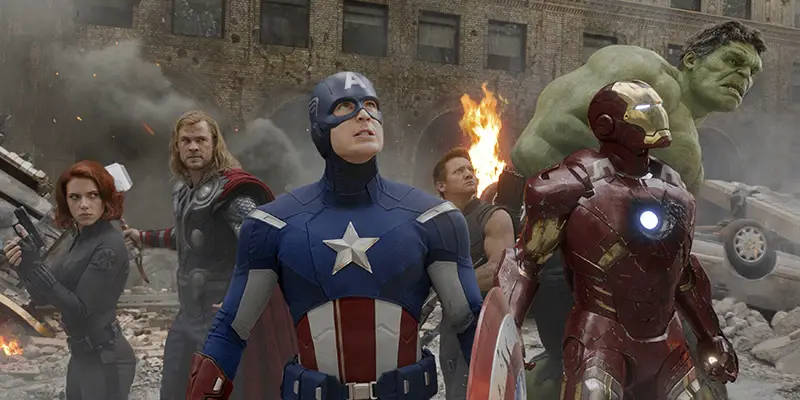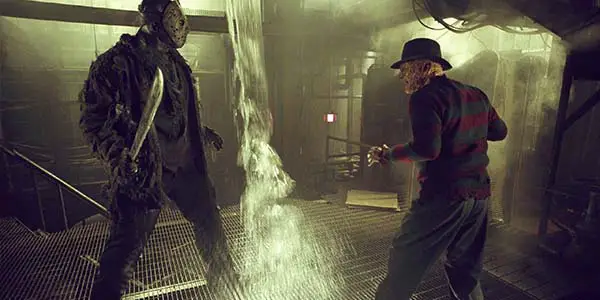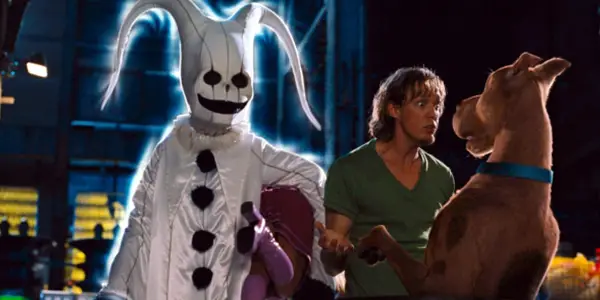A Cinematic Universe Of Imitations

Joseph is an Austro-American media and communications student currently living…
A “Cinematic Universe” is a modern concept of establishing an ever-expanding franchise. Some consider Marvel Studios to be the modern trendsetter. Their films build up the franchise with standalone entries, until the moment that they cross over. This concept proved quite successful, as The Avengers made around $1,5 billion internationally. It even lead to an expansion with TV shows, as for example Agents of S.H.I.E.L.D.
This success attracted the attention of competitors, who are interested in cashing in on this trend. The concept has attracted many imitators, and as a result, it also might have sacrificed its originality. Is imitation the sincerest form of flattery?
A New Form of Franchising
Marvel Studios coined the term Marvel Cinematic Universe shortly after the release of 2008’s Iron Man. This won the attention of the franchise Transformers, that came out a year prior. Plans were revealed of a Transformers universe that consists of many sequels and spin-offs. The goal is to have a group of writers establish a creative committee in order to organise many films in advance. Ironically, a creative committee almost lead to Marvel Studios losing its CEO Kevin Feige.

This highlights that a Cinematic Universe has become a long term planning tool. It allows a production company to map out films years in advance and save money on preproduction. It can also be used as a marketing tool to promote future films. Marvel Studios’ productions do this through after credit sequences hinting at future projects. While TV productions have become more cinematic, films seem to be taking notes from television.
A Concept With Horror Roots
Franchising is nothing new in cinema. Many production companies try to capitalise on success by releasing sequels, prequels and spin-offs. Even the Cinematic Universe approach has a deep rooted history in cinema. There is a fascination with seeing films crossover, most notably in the horror genre. Universal Pictures created the film Frankenstein Meets the Wolf Man back in 1943, which featured two icons of the genre fighting each other. This concept would later be revived once more for the slasher genre in 2003’s Freddy vs. Jason.

Yet, Cinematic Universes do not primarily focus on one singular event. The films allow for characters to cross paths. The individual film franchises are structured around story-lines that can intersect at any time. A crossover between the franchises is therefore an option, but not a must. To give an example, the reboot of Godzilla from 2014 has also expanded its franchise. The Kaiju will battle a rebooted King Kong in 2020’s Godzilla vs. Kong.
Even current horror films are adapting this concept. Universal is currently planning a Universal Cinematic Universe. This will allow classic horror icons to battle each other once more on the silver screen. 2014’s Dracula Untold was set as the first film in the franchise, and one day, we could see Dracula, Wolf Man and Frankenstein battle each other.
Imitation Without Borders
Currently, there are many franchises trying to copy this concept. Superhero stories always have been connected in comic books, so it makes sense for the MCU and the DC Extended Universe to establish this. Yet, it seems that some companies are grasping for straws. For example, there is a Hanna-Barbera Cinematic Universe in production by Warner Bros. Studios. It will start with a new Scooby-Doo reboot in 2018, though no other projects have been announced so far.

That is not all, as the new generation of Star Wars films also take place in a connective Cinematic Universe. Rogue One: A Star Wars Story is their first attempt at a spin-off. James Cameron is also planning on expanding Avatar into a long-running series. Universal is trying to establish a Cinematic Universe based on Robert Ludlum novels, which will start with Dwayne Johnson’s The Janson Directive.
Even Sony is desperately trying to establish a Spider-Man Cinematic Universe, which comes after a failed attempt with The Amazing Spider-Man 2. Originally, that film was supposed to build up to multiple spin-offs and sequels. Even though Sony is rebooting the franchise for a third time with Spider-Man: Homecoming, they have not given up. Each new project with a Cinematic Universe seems to be saturating the film market to a breaking point.
A Point Of Saturation
The only one trying to do something unique in the movie world is Legendary Pictures with the Godzilla/King Kong crossover, because it focuses on building up towards a clash between the two. Star Wars, on the other hand, aims at filling in stories that were alluded to in previously established canon. Yet, it sacrificed an already extensive library of books that were once canon as a result. While not unique, it expands upon the main narrative of the original trilogy.
Establishing a universe just to expand a franchise defeats its original purpose. It not only was meant to build up towards larger events, but the concept also allows for different characters to be explored. Marvel Studios allows us to see their world from different angles. One day we follow a Norse space god’s journey and the next day it’s the extravagant life of a billionaire. It offers unique opportunities to not just make sequels of one specific film.
The main focus of this concept remains on telling stories that interconnect. Yet, the amount of franchises using the title “Cinematic Universe” are saturating the market. In the end, it has become the new buzz word in the industry. It waters down the viewers’ expectations and can lead to some confusion. Some people still struggle to understand the differences between the MCU, the DCEU and the X-Men franchise. Then throw in the Spider-Man Cinematic Universe. This once unique concept may just leave people dreaming of simpler times.
What do you think of Cinematic Universes? Let us know in the comments!
Does content like this matter to you?
Become a Member and support film journalism. Unlock access to all of Film Inquiry`s great articles. Join a community of like-minded readers who are passionate about cinema - get access to our private members Network, give back to independent filmmakers, and more.
Joseph is an Austro-American media and communications student currently living in Austria, who grew up with film most of his life. Having won a new appreciation of cinema as an art form and as an industry, he aims to learn as much about it as he can.













